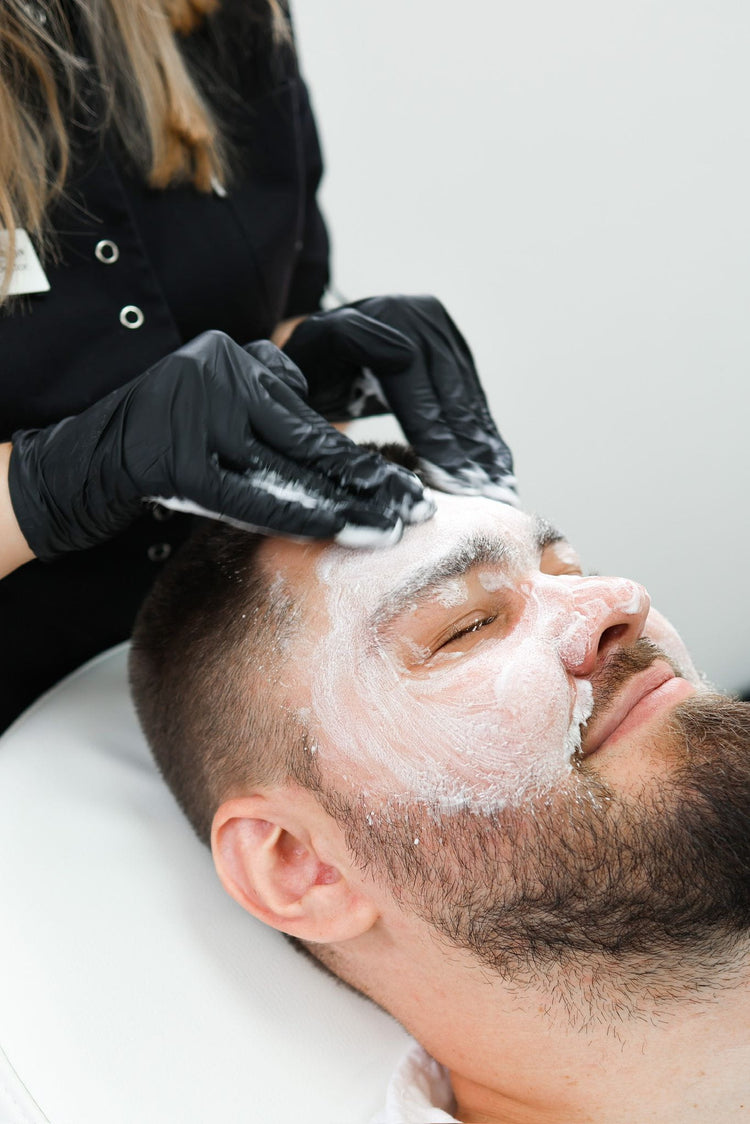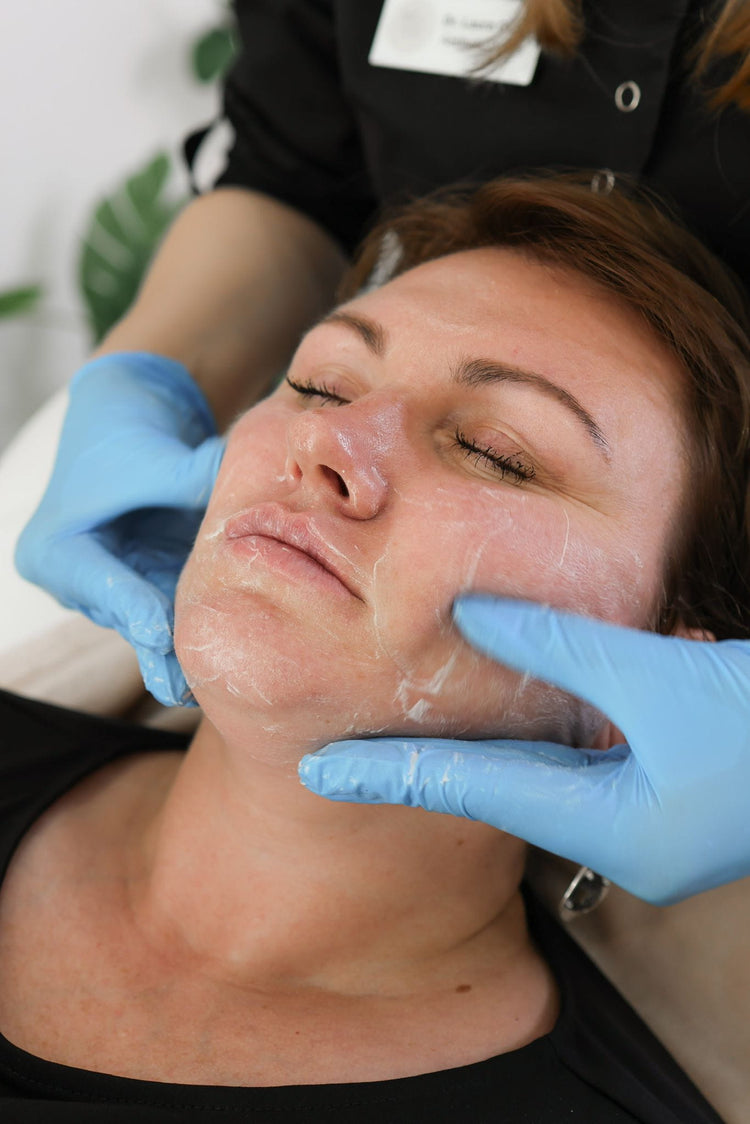Benefits of Skin Consultations
Achieving a clear and smooth complexion often requires more than just using over-the-counter products. Skin consultations provide invaluable insights into your unique skin type, concerns, and needs. A dermatologist can analyze your skin, identify underlying issues, and recommend personalized treatment plans to address specific concerns such as acne, wrinkles, hyperpigmentation, or sensitivity.
Identifying Underlying Issues

During a skin consultation, a dermatologist will thoroughly examine your skin to pinpoint any underlying issues contributing to your complexion concerns. This can involve analyzing your skin texture, identifying areas of inflammation, evaluating pigmentation patterns, and assessing your overall skin health. These insights are crucial for developing an effective treatment plan tailored to your specific needs.
By addressing the root causes of your skin concerns rather than just masking symptoms, you can achieve lasting improvements in your complexion. A dermatologist can identify factors such as hormonal imbalances, nutritional deficiencies, environmental stressors, or underlying medical conditions that may be affecting your skin.
Personalized Treatment Plans
Personalized treatment plans developed during these consultations take into account your individual skin type, concerns, and lifestyle. This ensures that the recommended treatments are most effective for you. These plans may involve a combination of topical creams, oral medications, laser therapies, or other procedures tailored to address your specific needs.
Regular skin consultations also allow for ongoing monitoring and adjustments to your treatment plan as needed. Your dermatologist can assess your progress, identify any changes in your skin, and make necessary modifications to optimize results.
Professional Product Recommendations
Skin consultations offer numerous benefits for those seeking a clear and smooth complexion. A key advantage is gaining expert insights into your unique skin type and concerns.
Dermatologists possess the knowledge and experience to identify underlying issues contributing to complexion problems, such as acne, wrinkles, or hyperpigmentation.
Based on a thorough examination, they can recommend personalized treatment plans tailored to your specific needs. These plans may include topical creams, oral medications, laser therapies, or other procedures, ensuring the most effective approach for your individual skin concerns.
Moreover, regular consultations allow for ongoing monitoring and adjustments to your treatment plan as needed. Your dermatologist can assess your progress, identify any changes in your skin, and make necessary modifications to optimize results and ensure continued improvement in your complexion.
Addressing Specific Skin Concerns
Achieving a clear and smooth complexion often requires more than just using over-the-counter products. Skin consultations provide invaluable insights into your unique skin type, concerns, and needs. A dermatologist can analyze your skin, identify underlying issues, and recommend personalized treatment plans to address specific concerns such as acne, wrinkles, hyperpigmentation, or sensitivity.
Acne Management
Acne management often requires a targeted approach that goes beyond using generic skincare products. Consulting with a dermatologist can be crucial in developing an effective treatment plan specifically tailored to your individual needs and the severity of your acne.
A dermatologist can identify the type of acne you have, whether it’s inflammatory, non-inflammatory, or cystic, and determine the underlying factors contributing to its occurrence. This could include hormonal imbalances, excess oil production, bacterial overgrowth, or even certain medications or dietary habits.
Based on their assessment, they can recommend a range of treatment options, including topical creams containing retinoids, antibiotics, or benzoyl peroxide; oral medications such as antibiotics or hormonal therapies; chemical peels; light therapy; or in more severe cases, isotretinoin. They will also advise you on lifestyle modifications that can help improve your skin health, such as maintaining good skincare hygiene and managing stress levels.
Regular follow-up appointments with a dermatologist allow for monitoring of your progress, adjustments to the treatment plan if needed, and early detection of any potential complications or side effects. This personalized approach ensures you receive the most effective acne management strategies for achieving clear and healthy skin.
Hyperpigmentation and Discoloration
Hyperpigmentation refers to the darkening of certain areas of the skin, resulting in patches that are darker than the surrounding skin. This discoloration can be caused by various factors, including sun exposure, hormonal changes, inflammation, or even certain medications.
During a skin consultation, a dermatologist will assess the type and severity of hyperpigmentation to determine its underlying cause and recommend appropriate treatment options.
Treatments for hyperpigmentation may include topical creams containing ingredients like hydroquinone, kojic acid, or vitamin C, which can help lighten dark spots over time. Chemical peels can also be effective in exfoliating the outer layers of skin, revealing brighter, more even-toned skin beneath. Laser therapy is another option, as certain laser wavelengths can target and break down melanin pigment, reducing the appearance of hyperpigmentation.
For stubborn cases or widespread discoloration, a dermatologist might suggest microdermabrasion or intense pulsed light (IPL) therapy to stimulate collagen production and improve skin texture while addressing pigmentation concerns.
It’s essential to follow the dermatologist’s recommendations carefully, including using sunscreen diligently to prevent further darkening of the skin.
Rosacea and Sensitivity
Rosacea is a common skin condition that causes redness, flushing, visible blood vessels, and sometimes bumps or pimples on the face. Sensitivity is a key characteristic of rosacea, meaning the skin is easily irritated by external factors such as sun exposure, certain foods, alcohol, or even stress.
For individuals with rosacea, consulting a dermatologist is crucial for effective management and minimizing flare-ups. A dermatologist can help identify specific triggers that worsen rosacea symptoms in your case and develop a personalized treatment plan.
Treatment options may include topical creams containing ingredients like metronidazole or azelaic acid to reduce redness and inflammation, as well as oral antibiotics in some cases. Laser therapy or intense pulsed light (IPL) can also be effective in minimizing visible blood vessels and improving skin texture.
It’s essential for individuals with rosacea to adopt a gentle skincare routine that avoids harsh products and irritants. Avoiding triggers, protecting the skin from sun exposure with broad-spectrum sunscreen, and managing stress levels are also important aspects of rosacea management.
Long-Term Skin Health
Achieving a clear and smooth complexion often requires more than just using over-the-counter products. Skin consultations provide invaluable insights into your unique skin type, concerns, and needs. A dermatologist can analyze your skin, identify underlying issues, and recommend personalized treatment plans to address specific concerns such as acne, wrinkles, hyperpigmentation, or sensitivity.
Preventive Care
Skin consultations offer numerous benefits for those seeking a clear and smooth complexion. A key advantage is gaining expert insights into your unique skin type and concerns.
- Dermatologists possess the knowledge and experience to identify underlying issues contributing to complexion problems, such as acne, wrinkles, or hyperpigmentation.
- Based on a thorough examination, they can recommend personalized treatment plans tailored to your specific needs. These plans may include topical creams, oral medications, laser therapies, or other procedures, ensuring the most effective approach for your individual skin concerns.
- Moreover, regular consultations allow for ongoing monitoring and adjustments to your treatment plan as needed. Your dermatologist can assess your progress, identify any changes in your skin, and make necessary modifications to optimize results and ensure continued improvement in your complexion.
Establishing a Skincare Routine

Achieving a clear and smooth complexion often requires more than just using over-the-counter products. Skin consultations provide invaluable insights into your unique skin type, concerns, and needs. A dermatologist can analyze your skin, identify underlying issues, and recommend personalized treatment plans to address specific concerns such as acne, wrinkles, hyperpigmentation, or sensitivity.
A key advantage of skin consultations is gaining expert insights into your unique skin type and concerns. Dermatologists possess the knowledge and experience to identify underlying issues contributing to complexion problems, such as acne, wrinkles, or hyperpigmentation. Based on a thorough examination, they can recommend personalized treatment plans tailored to your specific needs. These plans may include topical creams, oral medications, laser therapies, or other procedures, ensuring the most effective approach for your individual skin concerns.
Moreover, regular consultations allow for ongoing monitoring and adjustments to your treatment plan as needed. Your dermatologist can assess your progress, identify any changes in your skin, and make necessary modifications to optimize results and ensure continued improvement in your complexion.
Understanding Skin Aging
Understanding how our skin ages is crucial for maintaining its health and appearance over time. As we age, several factors contribute to visible changes in our skin: collagen and elastin production decline, leading to wrinkles and loss of elasticity.
The ability to retain moisture also diminishes, resulting in dryness and flakiness. Skin cell turnover slows down, which can manifest as dullness and a lack of radiance.
Exposure to UV radiation over the years causes damage to skin cells, leading to sunspots, age spots, and an uneven complexion. Additionally, hormonal changes throughout life can also impact skin texture and tone.
While aging is a natural process, understanding these factors allows us to take proactive steps to protect and nourish our skin.
A healthy lifestyle that includes a balanced diet rich in antioxidants, regular exercise, and adequate sleep plays a vital role in supporting skin health.
Protecting our skin from the sun’s harmful rays with daily sunscreen use is essential for preventing further damage and premature aging.
Enquire about skin treatments for pigmentation at It’s Me & You Clinic with Dr. Laura Geige
- Xela Rederm Skin Booster Treatments Near Send, Surrey - January 6, 2026
- Xela Rederm Skin Booster Treatments Near Croydon, Surrey - January 4, 2026
- Why Vista Edge Vape Is A Premium Choice For Experienced Vapers - January 2, 2026
